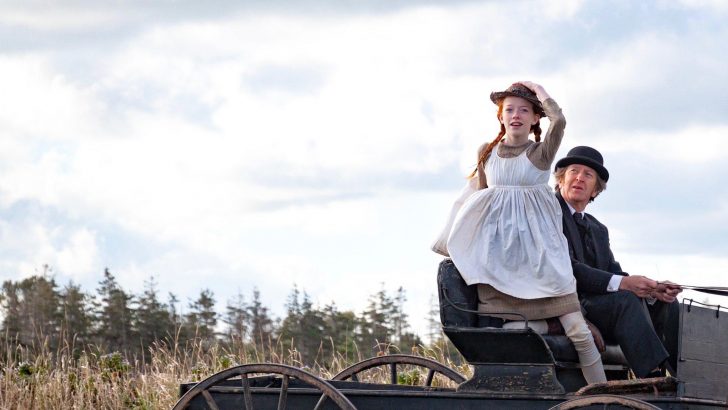In some circles, especially among young people, the contribution of the Catholic Church to science and the arts is a well-kept secret.
Fr Andrew Pinsent of the Ian Ramsay Centre for Science and Religion, and Fr Marcus Holden from the Shrine of St Augustine in Ramsgate have done more than most to remedy this (e.g. through their talks and the booklet Lumen: The Catholic Gift to Civilisation) so it was good to see them on the series Catholic Enlightenment (EWTN) last Saturday.
In this episode, they were discussing the Church’s influence on everything from the development of alphabets, through Church and secular music, to the promotion of forgiveness.
It was too much content for a 30-minute show, and while there was much of interest I’d love to have seen more depth on the topics – the stuff of future programmes perhaps? More attention to visuals and music would have helped too as it was largely talking heads.
As it promotes the Word, it’s no wonder the Church was influential in the early development of English literature, linked here to the bringing of the scriptures to England by the early monks. The broad sweep of the discussion ranged from Chaucer to Tolkien, and of course Shakespeare figured large – the Bard was shaped by the Catholic world and his imaginative vision was Catholic. In terms of contribution to music the discussion varied from the ever popular Gregorian Chant to complex choral works of Mozart and Beethoven. Tribute was paid to how Protestantism brought congregational singing to “great beauty”.
The Church’s contribution to the promotion of forgiveness was highlighted. It was suggested that we underestimate the transformative power of the Lord’s Prayer, with its strong forgiveness motif. The Church’s need for forgiveness wasn’t ignored, with Fr Holden pointing out that wrongs done in the name of the Church had ‘a disproportionately bad effect’.
Another well-kept secret, this time on Netflix, and also featuring enthusiasm for the Lord’s Prayer is the drama Anne With an E, a modern take on the children’s classic Anne of Green Gables. I finally got to finish the series and it’s a real treat to watch, featuring a lively young orphan girl who brightens up the lives of an aging brother and sister on a farm in Prince Edward Island off Nova Scotia.
It’s a warm, optimistic show, confident in human dignity and decency, all heart but with no little pain as well.
Amybeth McNulty is outstanding in the title role – the girl who has seen tough times and many disappointments, but still maintains an optimistic and imaginative outlook. She has an impressive sense of wonder and when introduced to prayer, especially the Our Father, she takes to it with enthusiasm.
The show is positive to religious faith though there are elements that were hardly in the original novel – for example a hint, with approval, of a long term same-sex relationship involving two elderly ladies, one of whom becomes a role model for Anne, and some fairly frank sexual talk among Anne and her friends. In a way it’s a timely programme for adults, challenging them to reflect on how they treat children.
Hunger strike
Still on the treatment of children, Moncrieff (Newstalk, Tuesday of last week) featured an interview with Donegal politician Tim Jackson, in the news for a hunger strike outside Dáil Éireann to persuade the members of the Oireachtas Committee on the Eighth Amendment to view an abortion video. One would have thought they would do that anyway, but it’s amazing how little people know or find out what an abortion actually is, even when discussing or voting on it.
Hunger strikes are a questionable strategy from a pro-life point of view but Jackson gave an excellent interview – moderate, articulate and clear headed. Moncrieff asked him some hard questions, even suggesting this was a stunt, but Jackson remained calm throughout.
I have no problem with the hard questions, but would just love, in fairness, to have some similarly robust questioning of pro-choice guests. Unfortunately it’s more like cheerleading when they’re on.
Text response was mostly negative (30-3), but Moncrieff said this was the way they came in. Many defied logic – it’s a woman-only issue (duh … fathers?), if you don’t agree with abortion don’t have one (tell that to the baby), a man shouldn’t be having such a say in relation to a woman’s body (what about the baby’s body?). Essential listening!
Pick of the week
CONVERSATIONS THE WORLD OVER
EWTN, Tuesday, October 3, 5.30pm
Raymond Arroyo’s conversation with scholar Clare Asquith, on hidden codes and beliefs in Shakespeare.
Unreported World: Ireland’s Big Decision
Channel 4, Friday, October 6, 7.30pm
Meeting women and families on both sides of Ireland’s current abortion debate.
The Leap of Faith
RTĖ Radio 1, Friday, October 6, 10.02pm
New season of the topical religious affairs show, with Michael Comyn.


 Brendan O’Regan
Brendan O’Regan A scene from Netflix series Anne with an E
A scene from Netflix series Anne with an E 